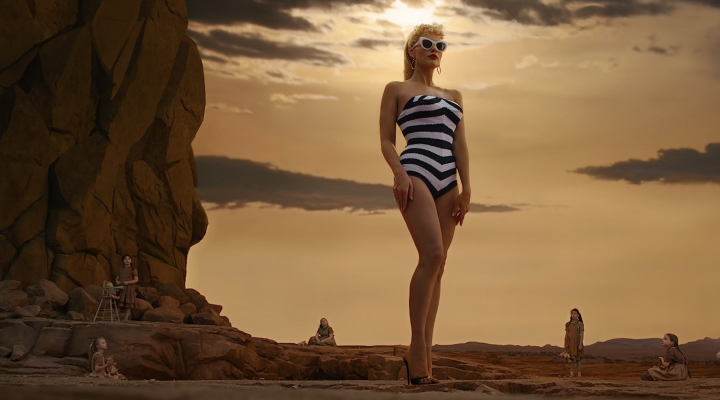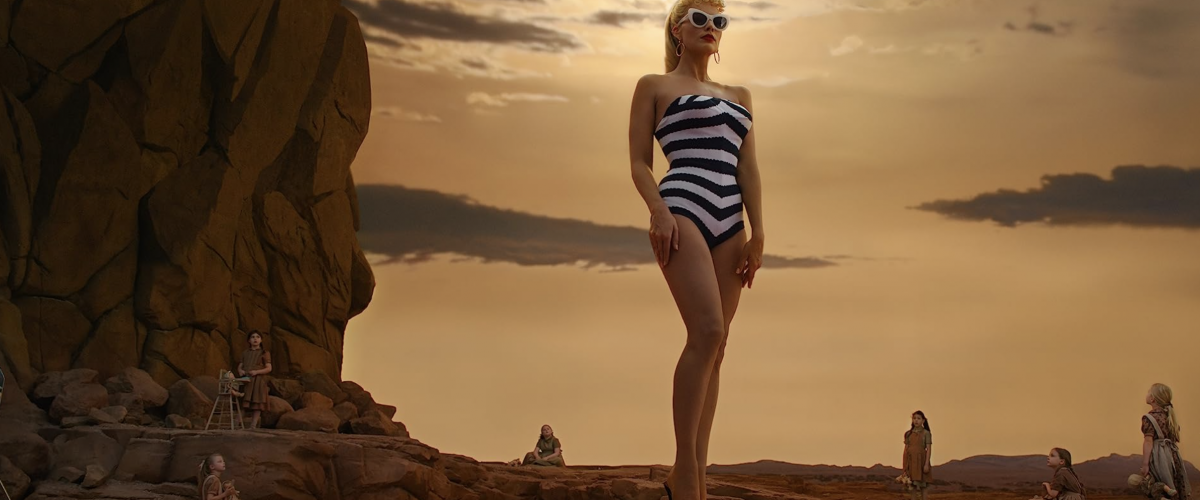Analysis of Google search data by online fitness resource Total Shape has revealed that searches for “Margot Robbie diet” have exploded by 1364% in the United States, following the release of the Barbie movie on July 21.
The Barbie movie has a wonderful, beautiful discourse around what it is to be a woman, especially a woman in the United States. Gloria, played by America Ferrera, gives a monologue that cuts right to the heart of our experiences. I’ve seen it posted in every way on every social media platform since the movie came out.

Brianna Childs
Although some have criticized that monologue as a very basic form of feminism, these numbers corresponding with the “Margot Robbie diet” show many of us still haven’t actually embodied that feminism.
The beauty industry is a multibillion dollar one that feeds on our insecurities with the idea that some future version of yourself might finally make you feel whole. Buy this cream! Stick to this diet! Try this totally safe juice cleanse! We have been forced to believe that being pretty and being skinny must be our No. 1 goal, and this industry will do anything to keep it that way.
“We have been forced to believe that being pretty and being skinny must be our No. 1 goal.”
Some of my earliest social memories involve feeling ashamed of my body in some way. Boys taunted me with nicknames like “ostrich” because I was so much taller than them in elementary school. So I learned that to be tall was wrong. I watched and listened as women older than me talked about themselves in negative ways, and I then realized there were so many more things that could be wrong with your body. I know I’m not alone with this.
A Harvard study, drawing on data from the Implicit Association Test, which asks people to sort words and images into “good” and “bad” categories, found implicit bias against fat people actually grew from 2007 to 2016, with 81% of people exhibiting such bias by the end of the study. Every other implicit bias in the study — regarding race, gender, sexual orientation, age and disability — waned during that period.
Where progress (although sometimes little) has been made in so many expressions of humanity, fatphobia seems always to persist, especially in our society. Comparison never ceases, and I can hardly go to a lunch or a dinner or have a conversation with women without a wish for losing weight being spoken.
“I can hardly go to a lunch or a dinner or have a conversation with women without a wish for losing weight being spoken.”
So how and, better yet, why does the church contribute even more to this conversation in a negative way?
Throughout my life, in my Christian social circles we were constantly aware of how we looked, what we were wearing and how it impacted the boys, even the men, around us. “Causing someone to stumble” felt like one of the most shameful things we could do. So we covered up, never questioning why we only were seen as objects.
This also was taught alongside the messaging that our flesh is bad. From a young, young age, I was taught to ignore my body, to suppress my body, even to want to be free from my body. The spirit is willing, but the flesh was weak. I might be one with Jesus if only this pesky flesh didn’t get in the way.
At the end of the Barbie movie, we hear the song “What Was I Made For?” by Billie Eilish play as a montage of videos of real women living their lives flashes across the screen. Barbie contemplates what it is to be human, rooted in the idea that she wants “to be a part of the people that make meaning, not the thing that is made.”
So, in all of our meaning making, maybe we have made far too much meaning out of being skinny, out of being pretty. I offer that maybe it’s time to start making meaning out of being at home in our bodies. Out of knowing that we have been called good and we will always be called good.
No more slimming down, sucking in, counting calories or wishing away wrinkles or zits or pounds. Our bodies do so much for us, and that is a beautiful thing in itself. No more running thoughts of negativity or unhealthy relationships with food and exercise. It is truly possible to heal, and to instead see food and movement as ends in themselves, not means to an end of thinness.
I’m so sorry the church has been a place that maybe only contributed to your hate of your body even more. I dream of it being a place and a people that instead bless your body — Black bodies, disabled bodies, fat bodies, bodies of every gender and every sexual orientation. Every body.
“Embodiment does not have to feel antithetical to a life of following Christ.”
Embodiment does not have to feel antithetical to a life of following Christ. In fact, I think it actually is the most harmonious way of doing it. Bodies are good. To be human is good. While discipline can be an important part of our lives, it never was meant to be full of shame and fear. The body and spirit never were meant to be separated, and there is no one body better than others.
In her book The Wisdom of Your Body: Finding Healing, Wholeness, and Connection through Embodied Living, Hillary L. McBride says, “For many years, I tried to disappear, to take up less space and to say with my body that I did not want to exist. But realizing that Spirit and body are not so different invited me back into wholeness with myself and into the desire for wholeness around me. … Healing my relationship with my bodily self changed the way I move, eat, feel, connect, rest and create.”
We can trust our bodies, made by God. Made by God to love and laugh and feel and breathe and eat and move. Made by God to spend time with people we love. Made by God to experience beautiful pieces of entertainment like the Barbie movie without comparing ourselves to the lead actress and wishing our bodies were different.
There is a more beautiful way. We were made for that.
Brianna Childs recently completed a pastoral residency at Wilshire Baptist Church in Dallas. She earned a master of divinity degree from George W. Truett Theological Seminary and a master of social work degree from the Diana R. Garland School of Social Work at Baylor University. She currently spends her time exploring Houston with her husband, Blake, and their dog, Diggory.
Related articles:
It’s time for Pastor Barbie | Opinion by Patrick Wilson
Why the patriarchy is hyperventilating over Barbie | Analysis by Rick Pidcock
Can Barbie help us create justice? | Opinion by Val Fisk


